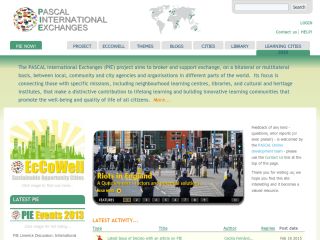This is a powerful book reflecting the key principles of PASCAL and reveals how its PURE development has led to sustainable change. Nevertheless, I keep wondering why I don't find deep and lasting outreach to business and the community in many universities I visit. Am I missing something?
A new imperative: regions and higher education in difficult times
Something extraordinary is underway around the world, the outgoing President of Tufts University and of the Talloires Network, a ‘global coalition of engaged universities’, tells us in a 2011 international volume: ‘institutions of higher education are directly tackling community problems ... the engaged university is replacing the ivory tower’ (Lawrence Bacow in Watson et al. 2011, outside cover and p. xx). Why, how and how far is this occurring? Community service is fully a century and a half old in the American university. Is the ‘extraordinary something’ a rediscovery, as the ‘ivory tower’ suffers the slow death of a thousand cuts? Yes in part; it is also something different, in a very different world.
It is a world characterised as global–local. As the 2008 global financial crisis (GFC) persists and extends, the idea of the learning region attracts wider attention as a policy proposition. It is central to this study. Its appeal has waxed and waned over the years, finding more favour in some parts of the world than others, depending on countries’ political arrangements and traditions. As national- and international-level government systems remain bemused in ever-more disturbing and unpredictable times, the logic of devolution to more local levels gains in appeal. Can and do regions learn? Can and do they involve higher education(HE) in their learning and development? The need may appear self-evident; achieving it is another matter.
Full text featured below...
| Attachment | Size |
|---|---|
| osborneimperativeebook.pdf | 2.02 MB |
 Printer-friendly version
Printer-friendly version- Login to post comments
- 126 reads






